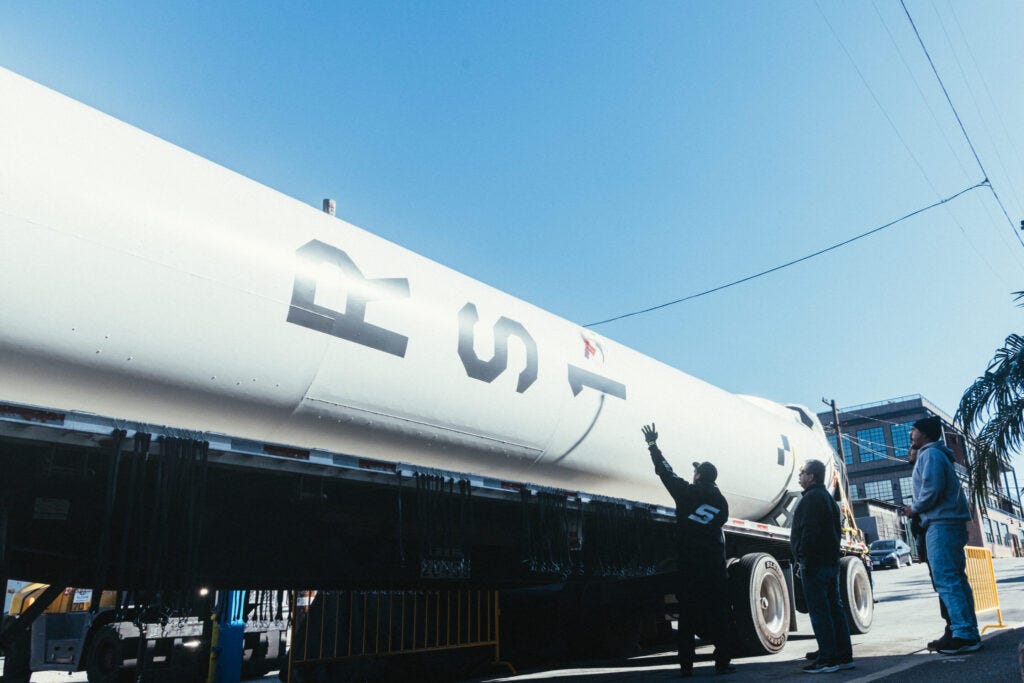Moonshot #38
Aerospace companies adapt their space tech to Earthly purposes, Microsoft and NASA make celestial data more accessible to the public, and all the other ways space firms are for the people this week.
ABL Space – After multiple failures to launch with its RS1 vehicle, ABL Space Systems has decided to pivot to missile production. According to the California-based startup, though, the motivation behind shifting its focus to missiles has nothing to do with the destruction of its first two test RS1 rockets. In fact, ABL’s justification is that the company’s “path to making a big contribution as a commercial launch company narrowed” as the launch market “matured,” per an X post by founder Dan Piemont. Instead of risking that narrow path, ABL opened its eyes to other markets and saw potential in applying its technology to US missile defense. The fact that $13.5 billion has been allocated to the country’s missile defense program for FY25 probably has a little something to do with the change of heart, too.
General Galactic – Similarly pivoting to Earth-bound endeavors is General Galactic, a startup that initially set out to sell carbon dioxide-to-methane reactors to SpaceX for use on Mars. Now, the company has repurposed its space reactor for use here on Earth, positing that it could replace the not-so sustainable practice of natural gas pumping. The California startup’s Genesis system can allegedly produce 2,000 liters of methane per day, which the company hopes to sell to customers in the chemical and plastics manufacturing industry. Recently, the startup raised $8 million in seed funding and plans to deploy its modules as early as 2025.
This edition of Moonshot is brought to you by the Space Resources program at the Colorado School of Mines.
Inversion Space – You may have thought we were done with California space news, but not so fast. Los Angeles-based Inversion Space just raised $44 million in Series A funding to advance its reentry vehicle, Arc, intended for on-demand cargo delivery from space. The latest financing round makes the company’s total funding $54 million to date. One of the participants in the latest round was Lockheed Martin, with VP Chris Moran claiming that Inversion’s vehicles have the “potential to revolutionize the way goods are transported and delivered globally.” Though Arc’s first flight isn’t scheduled until 2026, Inversion also plans to launch a demonstration spacecraft called Ray with SpaceX’s Transporter-12 mission. The mission was scheduled to take off in October but has been delayed to January.

Microsoft – NASA is partnering with Microsoft to bring us Earth Copilot, an AI chatbot designed to democratize access to scientific data about “the world we live in,” in the words of Microsoft’s piano-backed marketing video. The tool can reportedly condense NASA's complex geospatial information into easy-to-understand summaries on topics from hurricanes or air quality. Currently available to NASA researchers, Earth Copilot will ultimately be accessible to non-experts – at least, that’s the plan. However, we’d say there could be some trust issues when it comes to an AI chatbot analysis. Because while AI is inarguably an asset when it comes to sorting data from vast amounts of satellite imagery, we also know that AI-powered summaries are not always accurate (but are often amusing).
Maxar – Space technology firm Maxar just confirmed a data breach that occurred last month, targeting its employees’ names, addresses, Social Security numbers, and job details. The hacker, which used a Hong Kong-based IP address, likely had access to this sensitive information for one week before the company shut it down. At the time of writing, the number of affected employees – including how many of them had US security clearances – is not yet disclosed. We couldn’t help but find the irony in the situation, as Maxar is known for spying on Earth with its satellite constellation. How the tables have turned.
This edition of Moonshot is supported by the Open Lunar Foundation. Open Lunar's work sets precedents, creates pathways, and builds projects that enable a peaceful, cooperative lunar presence. Learn more about Open Lunar's work by joining their upcoming events.





